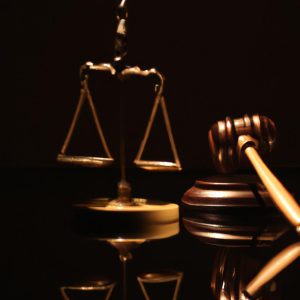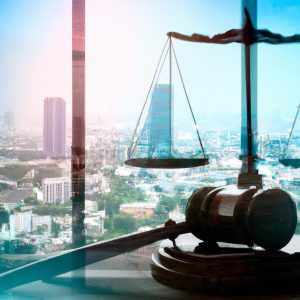In the intricate realm of estate planning and asset protection, the concept of trustor plays a pivotal role. As experienced practitioners in the field, our team at Morgan Legal Group recognizes the importance of understanding the nuances surrounding trustors, their responsibilities, and their rights within the legal framework. Delving into the essence of trustorship, we unravel the complexities and shed light on this fundamental aspect of trust law that underpins the safeguarding and transfer of assets. Join us as we embark on a journey to demystify the quintessence of trustor in the realm of estate planning and beyond.
Understanding the Concept of a Trustor in Estate Planning
As a legal term commonly used in estate planning, the trustor plays a crucial role in the creation and management of a trust. The trustor, also known as the grantor or settlor, is the individual who establishes the trust and transfers their assets into it for the benefit of beneficiaries. Understanding the concept of a trustor is essential for anyone looking to effectively plan their estate and ensure the proper distribution of their assets.
<p>When setting up a trust, the trustor must carefully outline their wishes and intentions for the trust, including specifying the beneficiaries who will receive the trust assets and appointing a trustee to manage the trust according to their instructions. Additionally, the trustor must consider factors such as tax implications, asset protection, and succession planning when creating a trust. By working with experienced estate planning attorneys like Morgan Legal Group, trustors can navigate the complexities of trust creation and administration to achieve their estate planning goals.</p>Key Responsibilities and Duties of a Trustor
As a trustor, you play a crucial role in establishing and managing a trust for the benefit of your beneficiaries. Your key responsibilities and duties include:
- Creating the Trust: Your first responsibility is to create the trust document, outlining the terms and conditions of the trust, including the assets, beneficiaries, and trustee.
- Choosing Trustees: It is essential to appoint a competent and trustworthy trustee who will manage the assets in the trust and distribute them according to your wishes.
- Transferring Assets: You must transfer the assets you want to include in the trust to the trustee, ensuring they are properly titled in the trust’s name.
- Providing Instructions: Clearly communicate your wishes and instructions to the trustee, outlining how you want the trust assets to be managed and distributed.
Additionally, as a trustor, you have a fiduciary duty to act in the best interests of your beneficiaries, prudently managing the trust assets and ensuring that they are used for their intended purposes. It is essential to regularly review and update your trust document to reflect any changes in your circumstances or wishes, ensuring that your trust continues to serve its intended purpose effectively.
The Importance of Choosing a Trustor Wisely
When it comes to estate planning, one of the most crucial decisions you will make is choosing a trustor. A trustor is the person who creates a trust and designates how their assets will be managed and distributed. This individual plays a significant role in ensuring that their wishes are carried out effectively and efficiently.
It is important to choose a trustor wisely for several reasons. A trustor should be someone who is trustworthy, responsible, and committed to fulfilling their duties. They should have a good understanding of financial matters and be able to make sound decisions. Additionally, a trustor should have the legal capacity to create a trust and be willing to adhere to all legal requirements. By selecting a trustor with these qualities, you can have peace of mind knowing that your assets will be in good hands.
Considerations When Appointing a Trustor in Your Estate Plan
When appointing a trustor in your estate plan, there are several important considerations to keep in mind. A trustor is the person who creates the trust and is responsible for transferring assets into the trust for the benefit of the beneficiaries. It is crucial to choose a trustor who is trustworthy, responsible, and capable of managing the trust assets effectively.
Additionally, when appointing a trustor in your estate plan, it is important to consider their relationship with the beneficiaries. A trustor should have a good understanding of the wishes and needs of the beneficiaries and be willing to act in their best interests. It is also important to choose a trustor who is financially stable and has sound judgment to make decisions regarding the trust assets. Making the right choice of trustor is crucial to ensuring that your estate plan is executed smoothly and according to your wishes.
Q&A
Q: What is a trustor?
A: A trustor is a person who creates a trust and donates assets to be held and managed by a trustee for the benefit of beneficiaries.
Q: Are trustors the same as trustees?
A: No, trustors are the creators of the trust, while trustees are appointed to manage and distribute the assets according to the trust document.
Q: Why is trustor important in the concept of trust?
A: Trustors play a crucial role in establishing the terms and conditions of the trust, including specifying the assets to be included and the beneficiaries to benefit from the trust.
Q: How does a trustor ensure that their wishes are carried out in a trust?
A: By carefully drafting a trust document that outlines their specific instructions and appointing a trustworthy trustee to manage the assets, a trustor can ensure that their wishes are carried out as intended.
Q: Can a trustor be a beneficiary of their own trust?
A: Yes, a trustor can designate themselves as a beneficiary of the trust, allowing them to benefit from the assets they have donated to the trust.
Key Takeaways
In conclusion, trustor is not just a word, but a concept that plays a crucial role in our relationships and interactions with others. Understanding the importance of trustors in our daily lives can help us navigate through the complexities of human connections with grace and empathy. So next time you find yourself in a situation where trust is at stake, remember the power of being a trustor and the impact it can have on those around you. Trust wisely, trust authentically, and watch how your relationships flourish. Thank you for joining us on this exploration of what it means to be a trustor. Stay curious, stay open, and keep trusting.










